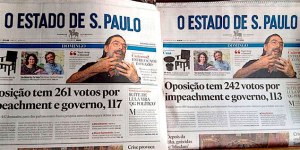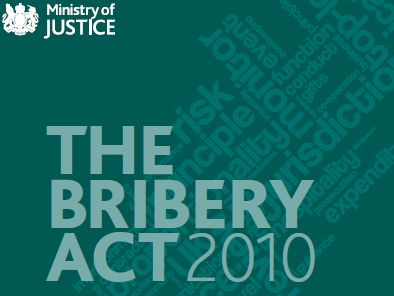
PSDB seeks support among the highly symbolic quilombo communities. Bad PR.
Zé Dirceu is a founding member of the Brazilian Workers Party and a former chief of staff to its iconic figure, former two-term president Luis Ignácio da Silva.
Zé Dirceu blogs.
Or more accurately, he blogs from behind bars after being found guilty by the Supreme Court of criminal conspiracy involving the skimming of cash from publicity budgets to feed election campaigns.
This may seem like a curious case, were it not for the ex-minister’s relentless argument that his conviction was a case of dois pesos e duas medidas — or, as you will sometimes find drunken (white) Brazilians saying, “For our friends, anything; for the rest, the Law.”
Dirceu, the ex-revolutionary, has a point. As the current president, Dilma, has insisted throughout the first two bloody TV debates, persons related to such scandals as (1) the buying of votes for the amendment that allowed presidential reelection in 1998 and the (2) laundering of money from state-sponsored sporting and cultural evidence for use as black market cash.
The two cases — I like to call them (drunk) the «Payolae of the PT and PSDB” — are for all intents and purposes identical, down to the same roster of shady characters that kept it in motion for over a decade, and yet nearly all cases involving the PSDB “get swept under the rug.”
Lacking any way to defend or deny the serious charges against his political career as governor of Minas Gerais, against his party and the Cardoso government, the PSDB-DEM candidate for the presidency, Senator Aécio Neves, plays the role of victim and accuses his critics of lying and carrying on a dirty campaign.
Unaccustomed to never being questioned — quite to the contrary! — and having the media perpetually in his favor — during the «Gerais Minas payola» case he has mixed censorship with advertising budgets and accepted no critics or accusations.
That is, political use of an advertising budget intended to “inform” the population. The following is a matrix of spending on PSAs — public service announcements — by the Accounting Tribunal of MG, for example.

But to return to of our study of short-form Gutenberg dialectics, during the first two debates, the opposition candidate would respond to a sharp question such as this like an aristocratic dueler — «Never mind that, I am a family man, an honest man, an honorable man.» The overuse of pathos arguments throughout took me back to my days in the classroom.
He wants to hide from voters the scandals of his government as well as his votes as a federal deputy. This has been his intent in all the TV debates, including the one held by SBT yesterday.
The candidate spent the entire first round of the elections attacking the president and her government. Now that the tables are turned, he turns to the tactic of insulting his opponent with ferocity.
Feminists should look over the transcripts with special interest. There was a real Oedipal drama going on at certain points, as Dilma and Aecio form a sort of pair.
Aécio’s sister, a Globo-backed PR Amazon queen with a thick file of ball-busting incidents in questions of daily coverage, illustrates the extent to which the public’s business has become the family business. Aécio refused to comment on political appointments of relatives during his time as governor, except for the formulaic, “You lie, you stupid-pants on-fire liar, liar, liar, liar!”

A curious moment came when Dilma produced a document purporting to validate a claim about her opponent’s government of Minas and — reportedly — about 50,000 Internet users logged on at once, according to an official statement by the state Accounting Tribunal, which later explained that this had had the effect of a DoS on its servers. I took the snapshot above toward the end of the debate, I will have to look up the time stamp on the screenshot.
Zé:
Suffice it to observe the debate held by SBT-UOL-Rádio Jovem Pan yesterday. Or rather, that public policy proposals for the nation be the focus of the debate. This is exactly what the president did and is doing in the first and second rounds, failing to expose her proposals to public opinion.
Why did the PSDB candidate not explain the destination of public funds for his privately owned radio stations?
Aécio goes ballistic when asked — and Brazil is asking — about the budgeting of advertising and publicity on which the media of Minas has gorged itself during his eight years in office. Especially when this question relates to money earmarked for the upkeep of three radio stations and a newspaper his family owns in Minas. These budget allocations were made by the communications department of his state government, led by the candidate’s sister, Andrea Neves.
The PSDB candidate reiterated that Andrea — a potent player with a direct line to Globo — worked as a “volunteer” in these episodes. Please!
The candidate grew even angrier when he was asked about the increase in levels of criminality every year during his two mandate (2003-2010), on the awful state of education in the state and on the siphoning off of R$ 7.6 billion from health care under his administration.
He has prepared a flipbook of talking points, such as that education in his state is the best in the federal union and that its healthcare is the best in the Southwest region, as attested to by federal ministers of Education and Health. To this day no one has said they witnessed any ministers saying such things or from what source this information proceeds.
How much credibility does the TCE-MG have?
Minutes after the revelation was aired, as in a magical illusion, the TSE-MG site went off the air.
When it came back online hours later, the reports on skimming from health budget funds had disappeared. The TCE-MG has not even taken the trouble to explain what happened.
To be more honest, it eventually responded using the nastiest trick in the child’s first primer of crisis management: “Not our fault. Go ask the tech guys.”
How can an accounting tribunal publish and then “depublish” a report of this kind?
But that is what happened. The plug was simply pulled on the TCE-MG Web site. Who believes in the credibility of the rest of the work performed by a TCE capable of pulling such a stunt to protect a former governor? What value is there in trusting to the conclusions drawn about the accounts presented by this same governor?
What is more, Aécio boasts of having had all his accounts approved by the TCE-MG, whose members he nominated and from whose site he is able to censor information relevant to irregularities in his administration …

Corruption in the PSDB: Everyone Is Out of Jail
During the latter Lula years, as the PT boasted at the the time, that PT legislators and executives had far fewer cases of malfeasance against them than the anti-situation mob at the time: the PSDB, the PFL-DEM and the perenially folkloric PMDB.
This was true — the study was carried out by Congresso em Foco — and remains true, but has not yet been emphasized by either candidate in this year’s contest, apparently in order to avoid politicizing ongoing investigations — like the politicization of the Auto da Fé of Zé Dirceu.
An important note: This is the first election held under the new elections law, so perhaps the Supreme Electoral Tribunal is worth following.
Filed under: Black Markets, Brazil | Leave a comment »















